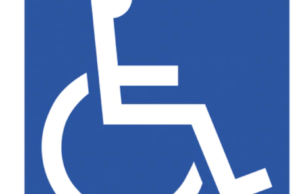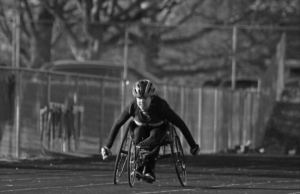Disabilty Double Standard: Social acceptance of wheel chairs still faces uphill climb
It happens subconsciously on a daily basis. The masses see somebody in a wheelchair using accessible public accommodations and wonder “do they really need that?” Though, it should be noted we rarely think the same things about blind people who use “white canes” or deaf and hard of hearing individuals who use hearing aids or cochlear implants. Why does the double standard only exist for wheelchair users?
This especially targets individuals who do not fall into a particular binary of physical disability or what is seen as the socially accepted model of such. We are taught from a young age that wheelchairs are only for people who can not walk, therefore, creating a stigma for those who did not necessarily choose to disregard walking. Rather, it happened out of necessity.
It comes from the problematic nature of the medical model of disability. Most physicians believe that if a patient has the ability to walk, the primary goal of treatment should be maintaining that ability for as long as possible.This is seen as the ethical approach, though it completely disregards the patient’s quality of life and the possibility that patients themselves may know what is best for their own bodies. This mentality has been subconsciously adopted by society and progressed to become a toxic social construct.
Therefore, many people who choose to use wheelchairs part time or as needed get a lot of flack not only from people who do not understand their decisions, but also their own care teams. Tensions also flow into socialization with full time wheelchair users, who often deem these individuals to be too able-bodied in order to fully integrate into their communities.
Another altercation that occurs quite often is the inappropriate inquisition of strangers. Though many of the frequently asked questions are rooted in innocence such as “why are you in a wheelchair?,” “what happened?” “how do you use the bathroom?” These are all very rude to ask, as one would not casually ask their able-bodied peers such personal information.
This also crosses the line into disclosure. A person does not have the legal obligation to divulge any personal or medical information regarding their status of disability or chronic illness regardless if it is visible or invisible. It is all based off of respect and trust. Respect the person, trust that their disability or chronic illness is a very real, and please respect the person’s privacy regarding the previously mentioned.









You must be logged in to post a comment Login